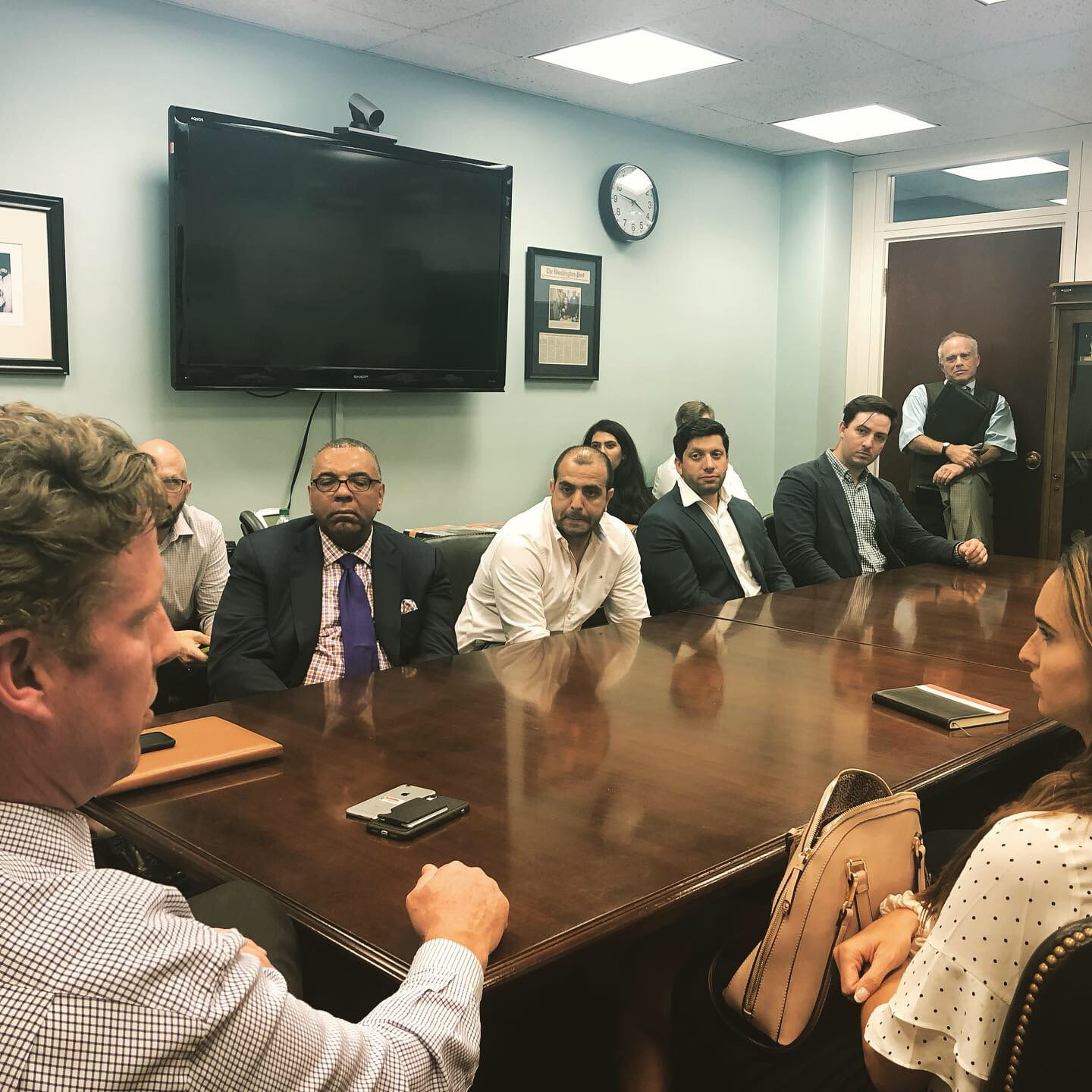Reflection by Shreyas Bhatnagar, MBA Candidate ‘20
This summer’s Business & Society Course Privatization, Nationalization and Public-Private Partnerships was one of the hardest classes to get into. I was told by my academic advisor, two semesters in advance, to be on the lookout for this class. With minimal spots available and a unique DC-immersion opportunity for online students around the country, each student has to be the first to register online. The registration process in itself was a competition, similar to the many themes we discussed in class.


I signed up for this class because it applied to my job at the U.S. Department of Transportation (USDOT) where I work for a mode of transportation, the Federal Railroad Administration (FRA). The current administration is keen in understanding and applying privatization and private public partnerships (PPPs) within the federal government. At the FRA, we are working on three large privately sponsored environmental impact studies which is the first step to bringing a project to a construction ready status. The projects allow for private technologies, previously not used in the U.S., to use their intellectual property for commercial means. Fortunately, or unfortunately (depends on how you view this), my region has two of the three projects FRA is currently working on including two new technologies, Hyperloop and Super Conducting Magnetic Levitation (SCMAGLEV). Hyperloop is a proposed mode of underground passenger and freight transportation under development by Tesla and SpaceX. The SCMAGLEV project is sponsored by Japan Rail Central, a Japanese railroad company who has political connections all the way up to their Prime Minister. The Prime Minister of Japan has met with both President Trump and President Obama to discuss SCMAGLEV technology and requested their support of their project.
Since I play a leading role in ensuring these private companies and the federal government provide economic opportunities to both the private industry and the public; the Business and the State: Privatization, Nationalization and PPPs class was a perfect fit for both my career and growth within the agency.
The class itself was broken out into two sessions. The first session was an online learning environment where Professor Weiner conducted virtual classes with a lot of background information on privatization, nationalization, PPPs, and the role of government. There was discussion and readings that helped the class understand and paint a picture on the pros and cons of privatization and nationalization. The second session was a four-day marathon of classes which included speakers and live learning. The live learning sessions were particularly immersive because we, as students, had the opportunity to learn about how others use their careers to change the world around us. Traditionally, students are expected to view lectures, attend class, read articles, textbooks, and journals to gain an understanding of a specific topic. The live sessions helped students learn what actually goes on in the real-world.
The opportunity to view presentations in class and visit experts that work in our government during our visit to Capitol Hill was and will be my most memorable moment at The George Washington University.
When I first came to class, my understanding of a PPP was that it was the best option out there for governments. With budgets being slashed and government providing less funding for basic necessities; the idea of a PPP is something all public servants believe is the answer to their fiscal problems. This class opened my eyes when we dug deep into understanding how PPPs actually work. Over the span of multiple discussions with experts in varying fields, there were several themes that were central to all conversations. Important discussions during class highlighted topics of stakeholders, accountability, political decisions, direction or alignment on how to move forward once in partnership, competition, corruption, and most important profitability. The speakers were effective in painting a picture on how PPPs and nationalization works around the world. Without having real time discussions from experts in all fields, it would be hard to learn the intricacies of how agreements are made and best practices to use moving forward. I am glad to have experienced a course where I get to meet people from all backgrounds and have the opportunity to learn and understand different perspectives. The opportunity to view presentations in class and visit experts that work in our government during our visit to Capitol Hill was and will be my most memorable moment at The George Washington University.

I will use the lessons learned from this class and apply them to my current and future projects. In fact, I was recently able to use the knowledge gained from this class to understand how to make an important work decision. The funding for the SCMAGLEV project congressionally requires that the private entity show how, once built, the project will benefit the public. The idea of benefiting the public has a different meaning for me after taking this class. Understanding that a good deal needs to be made at both sides for PPPs to be successful will be my negotiation point. By using key points and takeaways, I now have the confidence to ensure public money will be used to benefit both the private company and most importantly the community.


